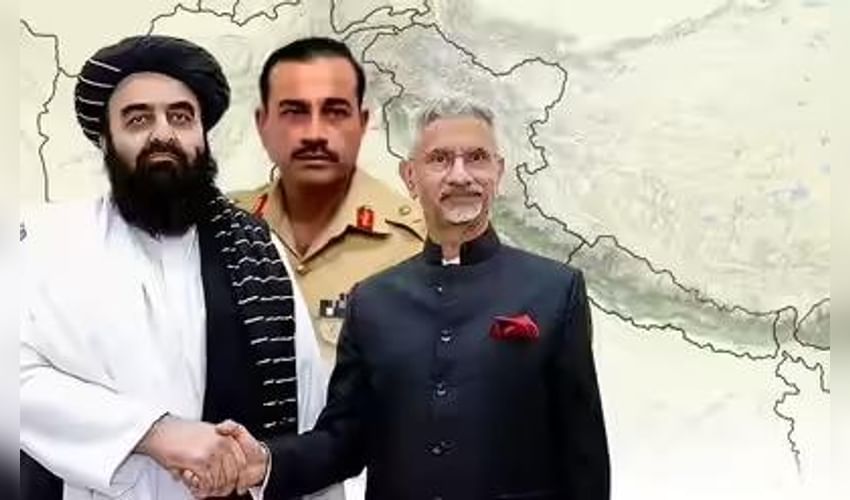World
Taliban's Outreach to India Deepens Rift With Pakistan Amid Escalating Border Tensions

A high-profile visit by Afghanistan’s Taliban leadership to India has intensified already worsening tensions between Kabul and Islamabad, marking a dramatic shift in regional alignments and underscoring a growing ideological and political divide between the former allies. Afghan Foreign Minister Amir Khan Muttaqi received an enthusiastic reception last month during his first official trip to India. Crowds of students and scholars gathered at the historic Deoband Islamic seminary to welcome him, while Indian officials in New Delhi held formal meetings and announced plans to restore their diplomatic mission in Kabul to full embassy status. The warmth of the visit stood in sharp contrast to India’s earlier posture, when New Delhi viewed the Taliban movement as deeply aligned with Pakistan’s military establishment.
Muttaqi’s visit was widely interpreted as a symbolic message to Pakistan. Hours after he arrived in India, Pakistan launched unprecedented airstrikes on Kabul, triggering a week of retaliatory violence and placing both nations on an unofficial war footing. Pakistani officials have repeatedly accused the Taliban administration of harboring and supporting Pakistani Taliban militants responsible for a surge in attacks across Pakistan. Afghan leaders deny the allegations but openly acknowledge cultural and ideological ties with the Pakistani Taliban, noting shared Pashtun heritage and a common Deobandi religious lineage.
The Deoband seminary, founded 135 years ago and considered a mother institution for the Taliban’s religious ideology, played a central role during the visit. Scholars at the seminary celebrated the reconnection with Afghanistan’s rulers, while avoiding criticism of the Taliban government’s harsh social policies, including the ban on girls’ secondary education. Addressing students, Muttaqi described Deoband as “the mother of our knowledge,” reaffirming the movement’s ideological roots.
Observers note that Pakistan views such gestures as hostile. For decades, Islamabad played a significant role in supporting the Taliban insurgency against U.S.-backed governments in Afghanistan. But relations deteriorated rapidly after the Taliban’s return to power in 2021, as Pakistan found itself confronting a renewed militant threat on its own soil. Analysts say Pakistan miscalculated the risks of backing a movement that shares ideological ground with its domestic insurgents.
The dispute also revives an old territorial grievance: Afghanistan’s refusal to fully accept the British-era border that divided the Pashtun ethnic population between the two nations. Recent statements by senior Taliban officials have invoked historical claims and disparaged Pakistan’s leadership, heightening nationalist rhetoric on both sides.
Religious communities in Pakistan reacted sharply to Muttaqi’s India visit. While some seminaries celebrated the visit as validation of decades of jihadist struggle, others accused the Taliban of abandoning Pakistan after benefiting from its support. Meanwhile, Afghan student enrollment in Pakistani seminaries has reportedly declined since the Taliban opened new institutions inside Afghanistan and Pakistan began pushing Afghan refugees back across the border.
The diplomatic rift now intersects with rising tensions between India and Pakistan following deadly bombings in both capitals last week. Analysts warn that the growing hostility among the nuclear-armed neighbors, coupled with the Afghanistan–Pakistan standoff, risks igniting a broader regional confrontation.
In Kabul, Taliban leaders continue to adopt a confrontational tone. Senior officials have warned Pakistan against further military action, boasting of the Taliban’s wartime experience and readiness for renewed conflict. Their rhetoric emphasizes ideological solidarity with fighters across the region and signals that gratitude for Pakistan’s past support no longer shapes their political calculations.
As both Afghanistan and Pakistan brace for further escalation, regional powers are watching closely. India’s diplomatic overtures suggest it sees an opportunity to assert greater influence in Afghanistan, even as the Taliban leverage these new relationships to distance themselves from their former patrons. The evolving alliances underscore a shifting regional order defined by nationalist aspirations, militant legacies, and ambitions that extend far beyond traditional partnerships.



